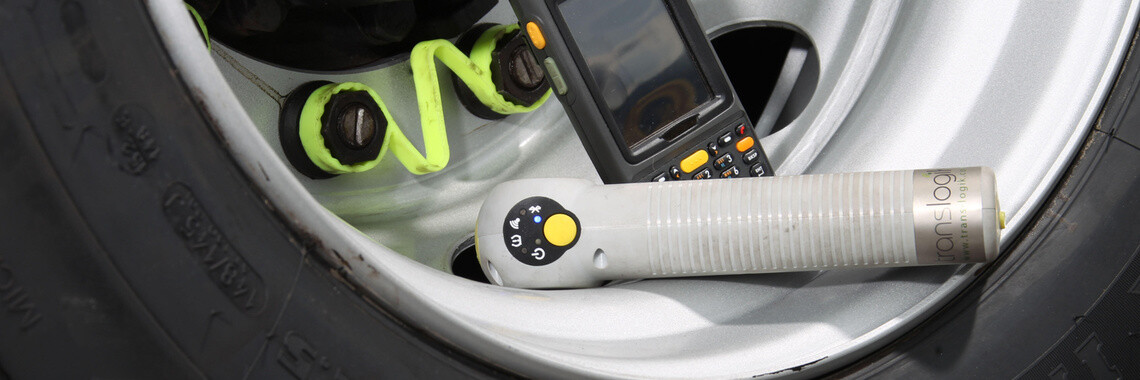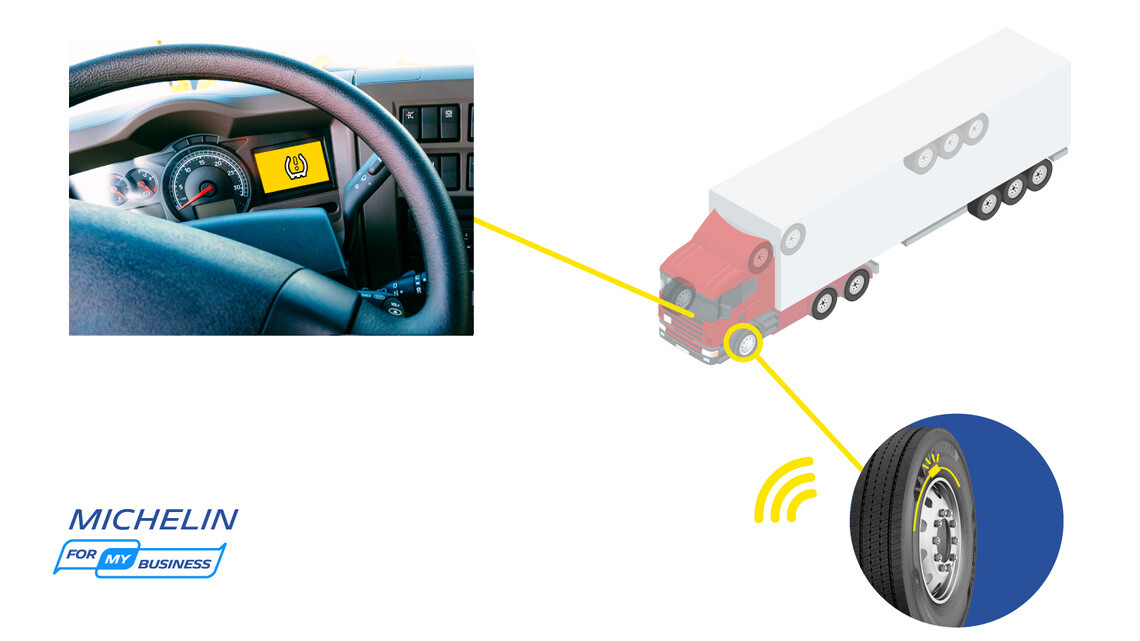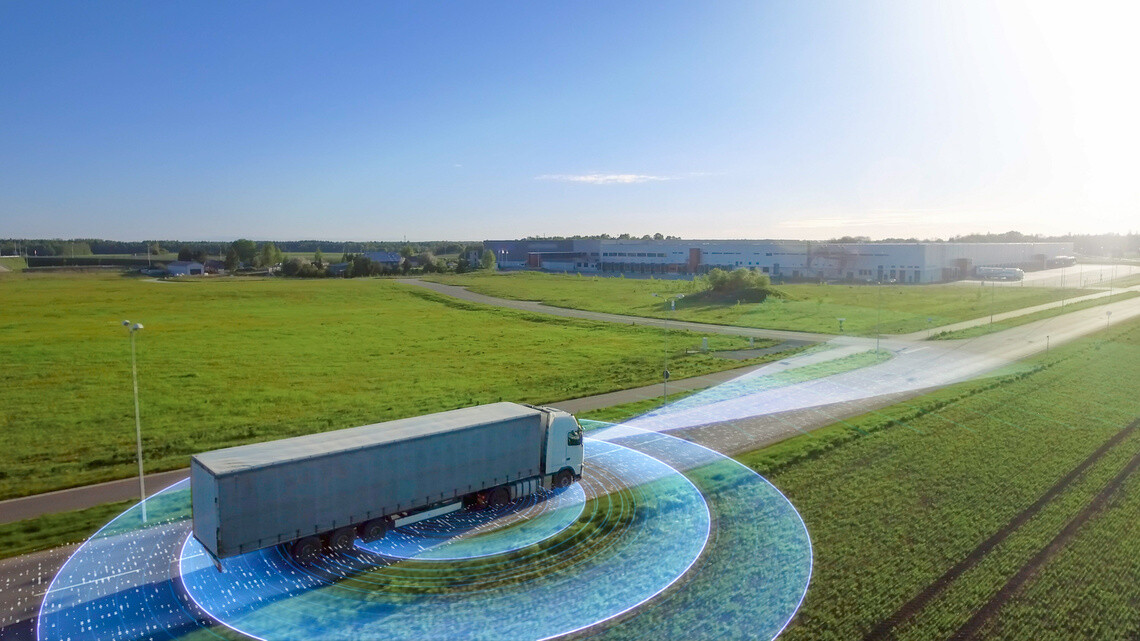
00 new tpms regulations on the horizon
Tyre Pressure Monitoring Systems (TPMS) were developed in response to growing concerns around road safety issues linked to low tyre pressure. On July 7, 2024, new TPMS regulations will require that all trucks and trailers be fitted with a pressure and temperature monitoring system. Michelin experts, Karim Essaadi and Claire Fioretti explain everything fleet owners need to know.

01 new tpms regulations with claire fioretti and karim essaadi
Claire Fioretti - Director of Standards and Regulations for Connected Mobility at Michelin, Clermont-Ferrand, Puy-de-Dôme, France Karim Essaadi - Service Designer at Michelin, Francfort-sur-le-Main, Hesse, Allemagne
Summary
- . For starters, what is a TPMS and what do I need to know about the upcoming TPMS regulations?
- . How does a TPMS work?
- . Why are TPMS regulations being extended to trucks and trailers?
- . Are there any other upsides that a TPMS can bring to my fleet?
- . What happens if a new truck doesn’t comply with TPMS regulations?
- . Will existing trucks and trailers need to comply with TPMS regulations?
For starters, what is a TPMS and what do I need to know about the upcoming TPMS regulations?
Claire Fioretti: Tyre Pressure Monitoring Systems monitor tyre pressure and temperature and alert drivers when tyres are underinflated. The original TPMS legislation, written in 2014, applied solely to passenger vehicles. In 2020, these requirements were extended to new truck and trailer models hitting the market in 2022. This newest round of regulations requires that every new truck and trailer sold in the European market from July 7, 2024 and onwards be fitted with a Tyre Pressure Monitoring System.
How does a TPMS work?
Claire Fioretti: Tyre Pressure Monitoring Systems are made of three essential parts.
• First, sensors monitor the temperature and pressure of the internal layer of the tyre.
• Then, these sensors communicate data to a central unit to be analysed.
• And if levels fall outside of the safe zone, a light alert is sent to the cabin dashboard, signalling to the driver to stop as soon as possible to check the pressure and address the problem.
Karim Essaadi: The minimum Default Trouble Code (DTC), required by the TPMS legislation, sends a signal to the driver when a specific tyre has a problem concerning pressure. This is particularly important in the case of twin tyres, where a pressure issue can affect the internal or external tyre. More sophisticated systems can even display the exact pressure of each tyre in real time.

02 how does a tpms system work
Why are TPMS regulations being extended to trucks and trailers?
Claire Fioretti: First and foremost for safety reasons. Put simply, underinflated or overheated tyres can cause accidents. In fact, Michelin conducted a study of 7,000 trucks in Europe and found that tyres are the leading cause of roadside truck breakdowns ౼ with 30% of breakdowns linked directly to tyres. Of these breakdowns, 90% of tyre-related problems were caused by pressure leaks. It is important to note that an estimated 80% of flat tyre risks could be avoided with daily pressure checks.1
Karim Essaadi: It’s true, but the upside goes far beyond safety alone! We know that a single breakdown can be costly for a fleet owner! This cost includes only replacing the tyre without the costs related to downtime, delivery delays that might incur penalties and even damaged merchandise. So at the end of the day, TPMS can increase a fleet’s profit by reducing costs and downtimes.
Are there any other upsides that a TPMS can bring to my fleet?
Karim Essaadi: On top of road safety and fleet efficiency, a TPMS can generate significant advantages in regards to a fleet’s sustainability goals. For example, under inflated tyres can considerably increase rolling resistance, which, in turn, increases fuel consumption, while monitoring and maintaining the correct tyre pressure has the opposite effect, reducing fuel consumption. TPMS is also an advantage for sustainable development, as every litre of fuel saved avoids the emission of 2.66 kilograms of CO2 into the atmosphere2. That's nothing to sneeze at.
Key Figures: Tyre Safety
- Based on a study of 7,000 trucks in Europe:
- • 30% of truck breakdowns are tyre-related, making tyres the leading cause of roadside breakdowns.
- • 90% of tyre-related problems are caused by pressure leaks.
- • 80% of flat tyre risks could be avoided with daily pressure checks.
What happens if a new truck doesn’t comply with TPMS regulations?
Claire Fioretti: Let’s be clear, these regulations apply directly to vehicle manufacturers and not fleet owners themselves. Concretely, when a manufacturer prepares to put a new vehicle on the market, this vehicle must be equipped with a TPMS to get approval. But the maintenance and good functioning of the TPMS will be the responsibility of the fleets as it will be checked during vehicle periodic technical inspections
Will existing trucks and trailers need to comply with TPMS regulations?
Claire Fioretti: No, the regulation does not require existing vehicles to be retrofitted with pressure monitoring systems. That said, if fleets want to ensure that their existing vehicles have the same level of safety, efficiency and sustainability as new vehicles, Michelin offers TPMS solutions to upgrade old vehicles.
Karim Essaadi: Our MICHELIN Connected Fleet Solutions offers fleet owners a unique alliance of tyres and services. This includes high-tech tyres, solutions to manage and optimise tyre performance, access to fleet management solutions via MICHELIN Connected Fleet, which combines vehicle data with driver behaviour and finally a new, automatic predictive and alert maintenance offer: MICHELIN Smart Predictive Tyre.
This new offer links telematic technology, TPMS and Quickscan to allow fleet owners to monitor tyre pressure in real time, monitor a tyre’s remaining tread depth, and leverage all information to ensure safety, efficiency and sustainability, leveraging Michelin's assets and expertise.
(1) Maximum estimated reduction in the number of breakdowns due to under-inflated tyres compared to their recommended nominal pressure thanks to daily monitoring of pressure measurements combined with appropriate maintenance operations. Internal Michelin study carried out on 7.000 vehicles in Europe equipped with the Michelin Effitrailer solution, on a panel of 340.000 pressure measurements analysed.
(2) Which fuel emits more CO2, petrol or diesel?, Futura

gettyimages 930571046
car going fast on a road by night







